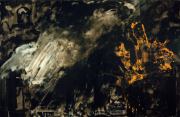Abstract
This article represents a larger project that seeks to understand the function and implications of the use of etymologies in the writing of history in the Middle Ages. I examine the strategy of historians to etymologize within the framework of grammatical theories and historiographic methods of Latin scholarship. I conclude that, contrary to the traditional view that medieval etymologies are literary tropes and wordplay in all contexts, medieval historians used etymology as an epistemological instrument of discovery that helped them verify anecdotal information from oral tradition in order to adapt it to Christian historical discourse. This article focuses on the earliest annalistic narrative about the history of Bohemia, the Chronica Boemorum (c. 1125), and examines how its author, Cosmas of Prague, utilizes etymologies in the legendary sections of his masterpiece, and what role he ascribes to them in the mechanism of story-telling. Close reading and formal analysis of selected passages with etymological content show that etymologies are used as evidence to recover reality outside language (i.e. discover origins), and in that capacity they motivate the story itself and expand the narrative.
Except where otherwise noted, the content of this site is licensed under a Creative Commons Attribution-ShareAlike 4.0 International (CC BY-SA 4.0).
Authors retain copyright of their work. The CC BY-SA 4.0 licence allows readers to copy and redistribute the material in any medium or format, and to remix, transform, and build upon the material for any purpose, even commercially, as long as the original author is credited and as long as any works that are derived from the original are distributed under the same terms.

